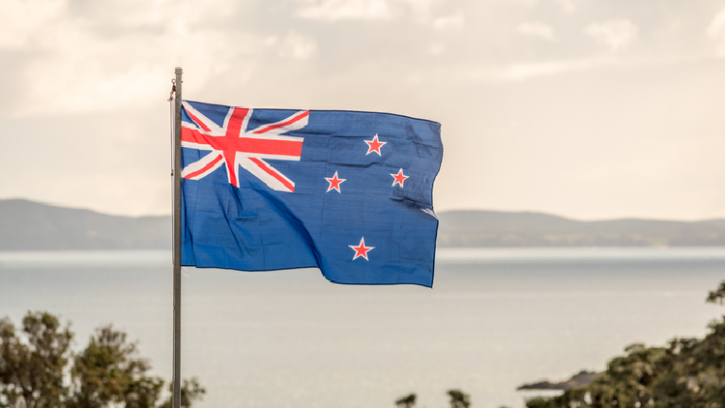‘Positive but more needs to be done’: NZ industry body responds to changes made to Therapeutic Products Bill

It is also concerned on whether the regulator that will oversee the sector could effectively regulate the market.
The Health Committee under the Ministry of Health on June 13 released its report on the Therapeutic Products Bill after considering public feedback.
According to the Ministry of Health, the committee had received over 16,500 submissions. Over 9,000 focused on the inclusion of natural health products (NHP) and called for their exclusion from the bill or to regulate it in a risk-proportionate fashion.
Over 700 also expressed concern on the bill’s potential effects on the use of rongoā – a traditional Māori healing system.
In response to the changes, industry body NHPNZ has welcomed the government’s plans to exempt small-scale NHP manufacturers from requirements such as having to obtain product authorisation or manufacturing license.
“We welcome the Government’s commitment to making changes so small-scale NHP producers won’t need to obtain a product authorisation or manufacturing licence where their products are made and supplied in-person to customers in New Zealand. But more changes are needed,” said NHPNZ’s government affairs director Samantha Gray.
The over 140-member strong industry body represents about 80 per cent of the natural health products sector. The industry, which consists of health foods and nutraceuticals, is said to contribute more than 2.3 billion per annum to the New Zealand economy.
The government explained that exempting the small-scale operators would help protect them from going out of business, since several of them operated out of their homes and produced only a small quantity of goods. These goods are also usually sold locally, such as farmers’ markets.
“The Bill is intended to support product safety, but it must be proportionate to the risk of harm. While NHPs are not risk-free, the evidence available suggests many low risk small-batch products do not pose a significant public health risk,” said the government.
These businesses would still need to comply with the relevant manufacturing standards that will be developed as part of the secondary legislation once the Bill has passed. These standards will be consulted on before becoming law, said the ministry.
While small-scale operators will be exempted, product authorisation will still be required for imported NHPs, and NHPs supplied by wholesale or exported.
To which, the NHPNZ has asked to replace the authorisation process with a product notification process for the entire sector.
Under the latter, companies could declare that the products conform to regulatory requirements and supplies the required information to the regulator on request.
It argued that this was because NHPs were of a low-risk nature as compared to medicines and added that the notification process was recognised as the global best-practice for NHPs.
“We welcome the Government’s commitment to making changes so small-scale NHP producers won’t need to obtain a product authorisation or manufacturing licence where their products are made and supplied in-person to customers in New Zealand. But more changes are needed.
“The Government’s proposed changes promise some improvement, but we are still some way off the modern legislation that is needed to allow the natural health products sector to thrive. We will continue to engage with the Government and other political parties towards making the new law fit for purpose,” said Gray.
Concerns on new regulator’s capability
On the other hand, there were concerns on whether the new regulator that will be formed to oversee the sector could perform its tasks effectively.
As part of the bill, a new independent regulator will be established to regulate all therapeutic products.
The Ministry of Health said that the regulator would need to have the capacity and capability to understand and regulate NHPs effectively, taking in account the traditional Māori systems’ perspectives on therapeutic products.
The regulator will be able to appoint advisory committees for assistance.
Due to the large number of NHPs present in the market, the NHPNZ is concern on whether the new regulator would be able to execute its roles effectively, as well as the amount of regulatory fees that businesses would need to fork out.
To which, it has asked to improve the accountability and resourcing of the regulator.
“We remain concerned about the burden the Therapeutic Products Bill places on natural health product manufacturers, whether the new Regulator will be able to effectively regulate the many thousands of natural health products in the market, and the cost that businesses will have to bear to go through the Regulator’s approval system,” said Gray.
Permitting health claims
While the NHPNZ has applauded the government’s plan to permit NHPs to make evidence-based health benefit claims based on traditional and / or scientific evidence, it is also asking it to recognise the health benefit claims permitted by overseas regulators.
The government has said that additional claims could be permitted as new evidence emerged.
It has also asked for the bill to be structured in a way that there would be a dedicated section for NHPs, so as the sector was “not overregulated by inadvertently being caught up in medicines level regulation.”
The government has earlier said that NHPs were not set out in a separate dedicated sector “because of the many similarities in regulating them compared to other types of therapeutic products.”
It gave the example of how all therapeutic products would need to have market authorisation before they were supplied to the market, however, the requirements in the secondary legislation would differ for each product.
“The market authorisation is conducted by an online self-registration, rather than requiring an evaluation by the regulator. This should result in lower costs for NHP manufacturers than for manufacturers of medicines and some medical devices.
“There will be some exceptions to registration, such as products that have extremely low concentrations and natural health practitioners who manufacture their own products during or following consultations,” the Ministry of Health said.
The Therapeutics Policy Team from the ministry will be providing its next update in around August.











